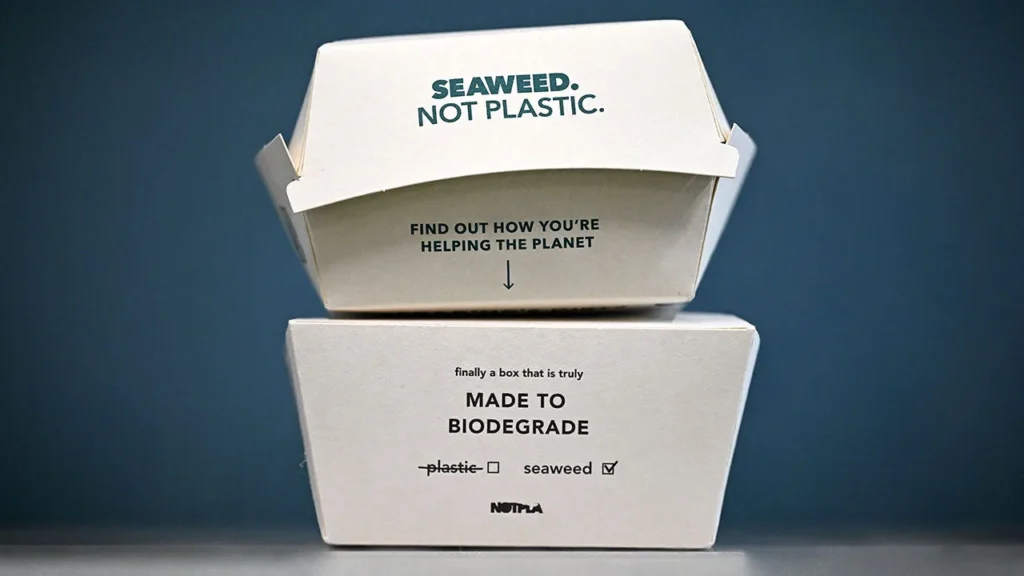Plastics have been a cornerstone of modern manufacturing since the invention of Bakelite in 1907. Marketed as “the material of a thousand uses,” plastics revolutionized industries with their versatility. Today, however, the environmental and health impacts of this material demand urgent solutions.

By 1950, global plastic production reached 2 million tons annually. That number has since skyrocketed to 450 million tons per year. Alarmingly, microplastics infiltrate even the most remote parts of the planet and the human body, including placentas, lungs, and blood.
To combat this crisis, researchers and manufacturers are pioneering sustainable alternatives.
Seaweed-Based Packaging
Biodegradable seaweed packaging offers a promising solution. Norwegian startup B’zeos creates products like edible straws and plastic wraps that degrade within 47 days. Similarly, Notpla, a 2022 Earthshot winner, produces seaweed-based cutlery, takeout containers, and energy gel pods.


Bioplastics from Plants
Bioplastics, derived from renewable sources, range from non-biodegradable options like Bio-PET to fully compostable ones like PHA (polyhydroxyalkanoates). Companies like Genecis and Refork use food waste and wood fibers to produce biodegradable materials. PHA stands out for its versatility and rapid degradation.
PlantSwitch is advancing this field by turning agricultural waste into compostable biopolymer pellets, designed to degrade in eight weeks.
Silicone: A Safer Alternative
Silicone, derived from silica and natural gas, mimics plastic’s durability without releasing harmful residues or microplastics. Widely used in kitchenware and medical implants, silicone is technically recyclable but requires specialized facilities.

Innovative Packaging Solutions
Emerging technologies are reshaping packaging. A spray-on, biodegradable coating for produce, developed by Rutgers and Harvard scientists, eliminates the need for plastic. Other alternatives use natural fibers like hemp, jute, and sugarcane byproducts to create eco-friendly packaging materials.
Call to Action
As global plastic production continues to rise, sustainable alternatives must replace harmful plastics. Governments and industries must cap plastic production. Together, we can demand change and protect our planet from the suffocating grip of plastics.
Reference- EARTHDAY Network Newsletter, Interesting Engineering, Our World in Data, Popular Science, ScienceDirect






